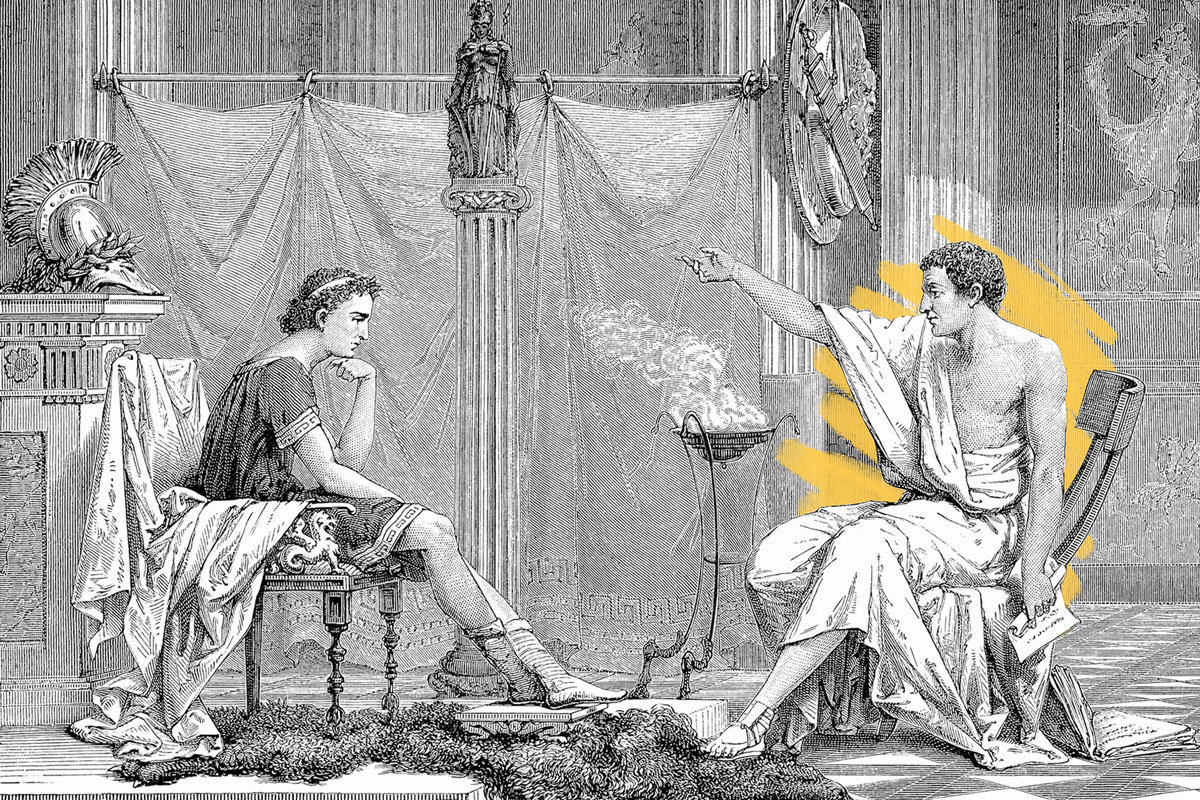Alexander the Great was a student of Aristotle.
Around 343 BCE, King Philip II of Macedon called upon the prolific Greek philosopher Aristotle to tutor his 13-year-old son, Alexander III, who later became known as the brilliant military tactician Alexander the Great. Philip II hired Aristotle in hopes of molding his young heir into a well-educated and cultured leader, fearing that military prowess alone wouldn’t be enough to command respect from his subordinates. He trusted Aristotle in part because the philosopher’s father, Nicomachus, once acted as the court physician for a previous Macedonian king. As payment for tutoring his son, Philip II promised to rebuild Aristotle’s hometown of Stagira, which the king had captured and razed years earlier.
With everything in place, Aristotle and Alexander set out to study at the Nymphaeum (shrine of the Nymphs) in the remote village of Mieza, where they spent roughly three years together. Though few specifics are known about Aristotle’s exact teachings, it’s believed that he schooled the future ruler in many subjects, such as medicine, poetry, rhetoric, geometry, and even botany. (In fact, Alexander’s future army included several botanists whose job it was to collect samples and study the new lands they conquered.) In 340 BCE, Philip II recalled Alexander back home, and the boy’s time with Aristotle came to an end. Alexander went on to assume the Macedonian throne in 336 BCE, while Aristotle returned to Athens and established a new public school known as the Lyceum.









